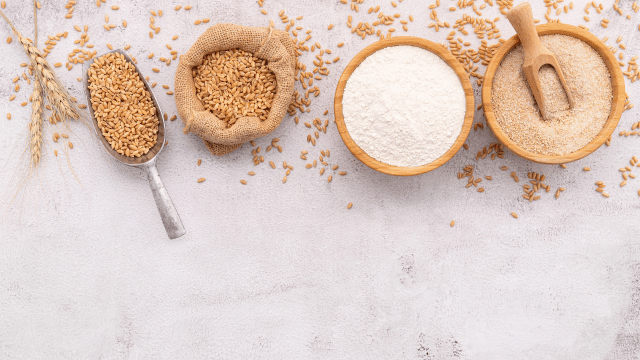Wheat, barley, and rye all have glútem in them. It makes dough stretchy, which helps it rise and keep its shape. When glutenin and gliadin, two proteins, mix with water, they make glútem. It is important to remember that glútem is not always bad for people. In fact, it is an important part of many traditional meals around the world.
Gluten and celiac disease
When someone with celiac disease eatsglútem , their immune system reacts in a way that hurts their small intestine. About 1% of people in the world are affected by it. For people with celiac disease, eating even small amounts of gluten can have major health effects, such as not getting enough nutrients, being malnourished, and long-term problems.
Common misconceptions about gluten
A lot of false ideas about glútem have grown in acceptance over the last few years. A common misunderstanding is that glútem is naturally bad for you and that everyone should stay away from it. It is true that some people, like those with celiac disease or glútem sensitivity, may respond badly to glútem but that doesn’t mean that glútem is bad for most people.
Another false belief is that a glútem -free diet will always help you lose weight. To lose weight, a lot of people have turned to gluten-free diets. But the truth is that cutting out gluten does not guarantee weight loss. For long-term weight management, it’s important to pay attention to well-balanced diet and portion control.
Debunking gluten myths
A common false belief about glútem is that it can lead to autism. This myth comes from a study that claimed a link between gluten and autism, but that study has since been discredited. However, many scientific studies have since disproved this claim, showing that there is no proof that eating gluten causes autism.
Another myth is that glútem -free foods are always better for you than gluten-containing foods. Gluten-free foods may be better for people with celiac disease or gluten intolerance, but they are not necessarily better for you. There are actually a lot more sugar, fat, and calories in many glútem -free foods than in glútem -containing foods. You should read labels and pick glútem-free foods that are also good for you.
The gluten-free diet trend
Getting rid of glútem from your diet has become trendy in recent years, and many people do it even if they don’t have celiac disease or gluten sensitivity. Some people think that avoiding glútem can make their health and well-being better in general. There isn’t a lot of scientific proof to back up these claims, though.
Is a gluten-free diet necessary for everyone?
The vast majority of people do not need to follow a glútem -free diet. There’s no reason to cut out gluten from your diet unless a doctor has told you that you have celiac disease or are sensitive to gluten. In fact, cutting out glútem foods that you don’t need can make you less healthy because many of them are good sources of fiber, vitamins, and minerals.
Gluten-free alternatives and their nutritional value
If someone needs to follow a glútem-free diet, there are a lot of gluten-free options out there. These include foods that are marked as gluten-free, like rice, corn, quinoa, and oats. It’s important to pick these options carefully and make sure they still give you the nutrients you may be missing from a glútem -free diet.
Gluten sensitivity vs. celiac disease
People with glútem sensitivity, also called non-celiac glútem sensitivity, have symptoms that are like those of celiac disease, but their immune systems don’t react the same way and their small intestines don’t get damaged as much. A bigger share of people than have celiac disease are thought to be sensitive to glútem. However, the signs are very different and can include stomach pain, bloating, diarrhea, and tiredness.
Gluten-free labeling and regulations
There are rules in many countries that make sure goods that say they are glútem free actually are gluten-free. Different guidelines may apply, but in general, the product must have less than 20 parts per million (ppm) of glútem People with celiac disease or gluten intolerance should be able to eat this much without getting sick. Check the labels and look for approvals to make sure that gluten-free foods are really glútem -free.
Conclusion:
Finally, it is important to tell the difference between fact and myth when it comes to gluten. People who have celiac disease or are sensitive to glútem need to stay away from gluten for their health and well-being. On the other hand, gluten is not bad for most people and they don’t need to cut it out of their diet. When making decisions about your health, it’s important to do your research and talk to a doctor or nurse if you have worries about eating gluten. Remember that a healthy, well-balanced diet is important for everyone.
